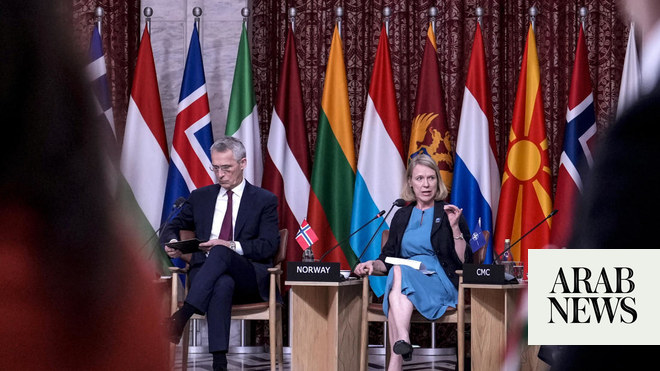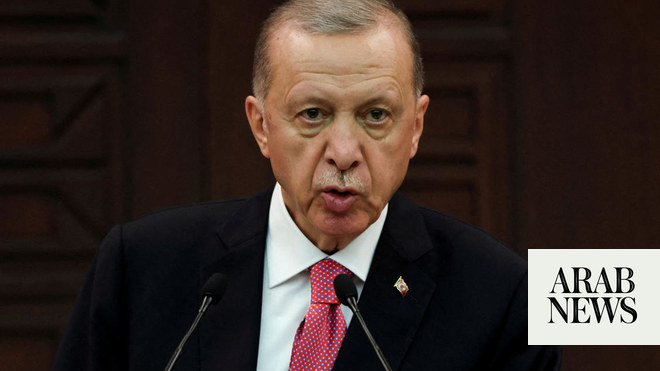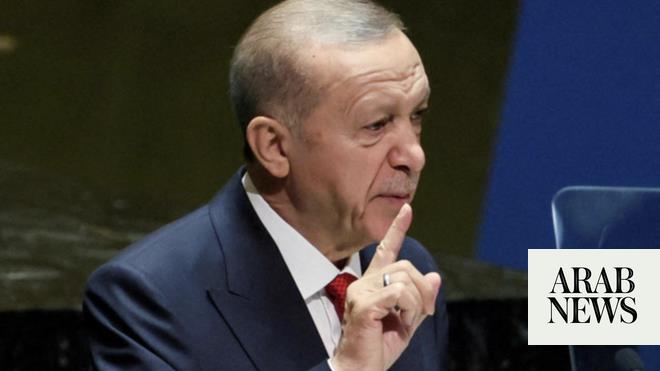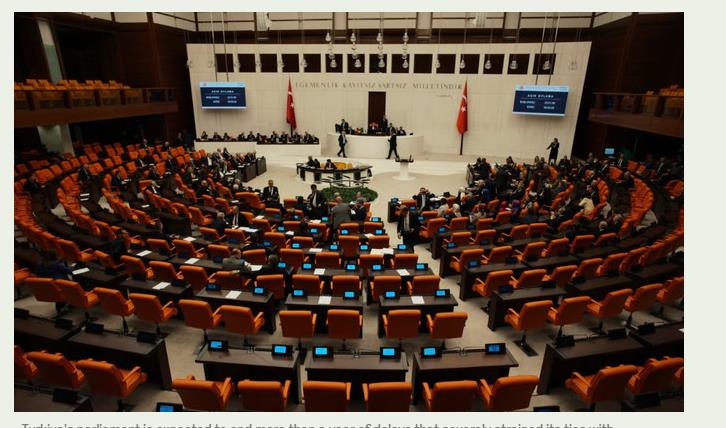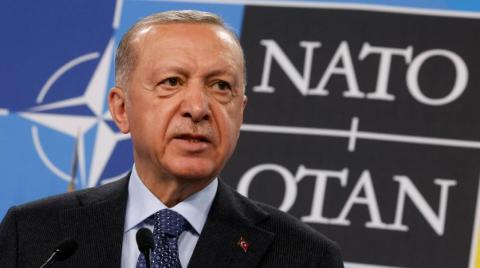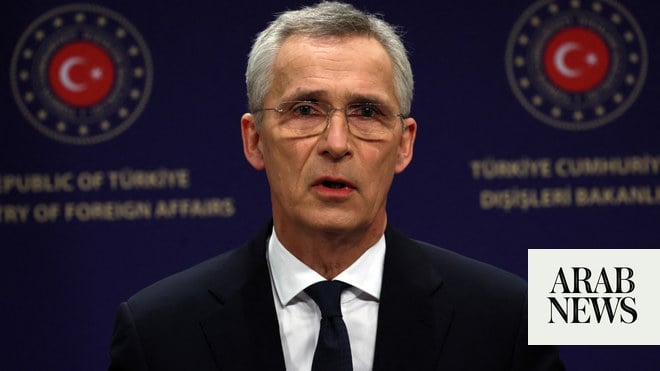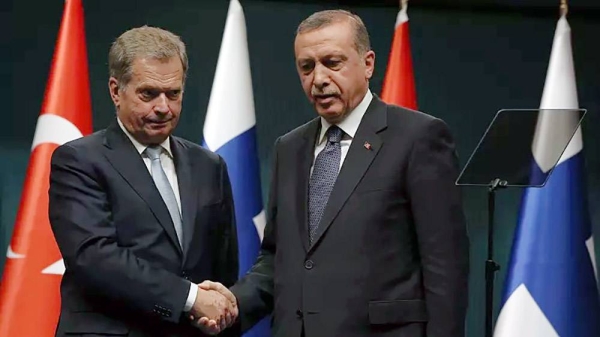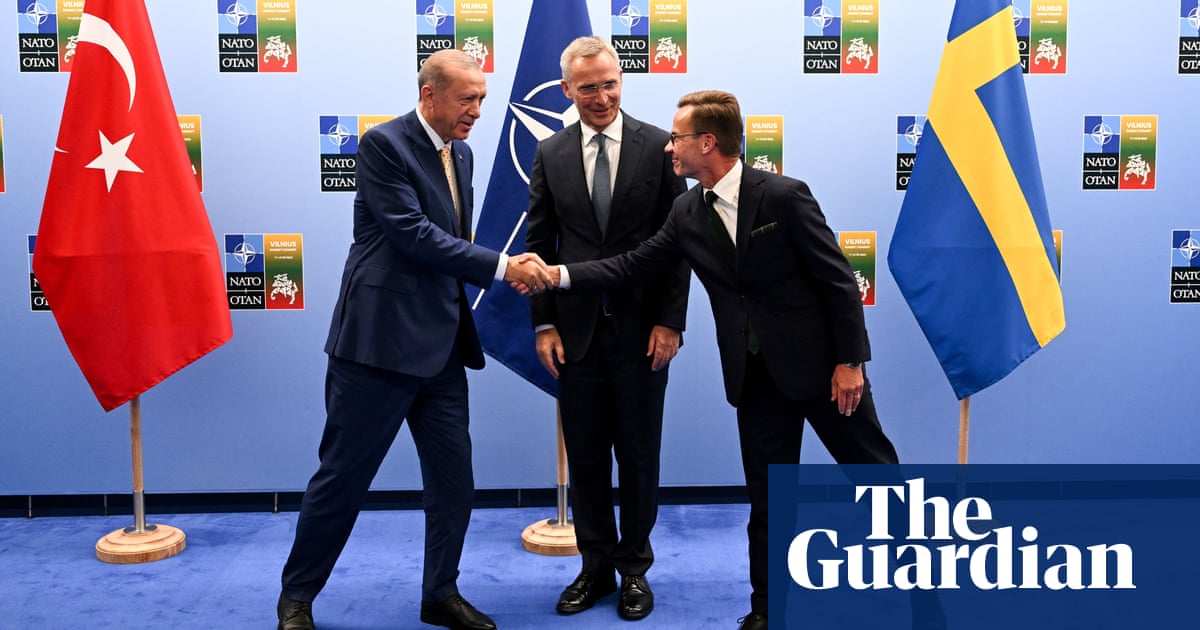
Turkey’s president, Recep Tayyip Erdoğan, has removed one of the final hurdles blocking Sweden from joining Nato by submitting a bill approving membership to parliament for ratification.
The move on Monday was in line with a commitment Erdoğan made to Nato at its summit in July when he said he would send the bill to parliament for ratification when parliament restarted in October.
The bill’s passage through parliament should be a formality, but Erdoğan has a track record of holding out on Sweden’s application to extract concessions from the US, including the sale of F-16s to Ankara – a deal that has been held up in the US Senate.
The Turkish leader has also been demanding that Sweden tighten up on the extradition of Kurdish asylum seekers living in Sweden. Turkish officials have insisted the steps Sweden had taken to clamp down on the outlawed Kurdistan Workers party militia were insufficient.
In a sign of real movement, the Turkish parliament on Monday moved the accession bill forward.
“The Protocol on Sweden’s NATO Accession was signed by President Recep Tayyip Erdogan on October 23, 2023 and referred to the Grand National Assembly of Turkey,” the presidency wrote on the social media platform X, formerly known as Twitter, without elaborating.
Turkey and Hungary are the only two EU members whose legislatures have yet to sign off on Sweden’s accession.
The Hungarian leadership – which is closely aligned with Ankara and maintains a relationship with Moscow – has sent mixed signals about why it has dragged its feet.
At times, the Hungarian government argued that it’s only a “technical” issue, but on other occasions it brought up complaints that Sweden had – in Budapest’s view, unfairly – criticised the state of Hungarian democracy.
Most observers have assumed that Hungary has been hiding behind Turkey, and will not want to be exposed as the only Nato member blocking Sweden’s membership.
Officials within Nato have said that Hungary has repeatedly reassured them it will not wait to be last to ratify. The Hungarian parliament had earlier also delayed its ratification of Finland’s membership, moving quickly once it became apparent that Turkey would sign off as well.
But the issue of Sweden’s membership has fuelled frustration in western capitals already concerned about Budapest’s friendly links to Moscow and Beijing.
Sweden’s prime minister, Ulf Kristersson, immediately welcomed Monday’s move and said Stockholm was looking forward to becoming a Nato member. “Now it remains for the parliament to deal with the question,” Kristersson wrote on X.
There is no set timeframe for ratification, however. The bill will be put on the agenda of the parliament’s foreign affairs commission, which will have to pass it before it can be sent to the general assembly for ratification.
Sweden and Finland applied to join Nato last year following Russia’s invasion of Ukraine. Finland’s membership was sealed in April, in a major expansion of the alliance, but Sweden’s bid is, in some respects, the more important.
In a reminder of the security threats facing Baltic and Scandinavian countries due to Russia’s antagonism, Sweden revealed on Monday that damage to a telecommunications cable in the Baltic Sea between Sweden and Estonia was related to damage to a pipeline and cable between Estonia and Finland.
The government said that Estonia had assessed that “the damage to the gas pipeline and communications cable between Finland and Estonia is related to the damage to the communications cable between Sweden and Estonia”.
On 8 October a subsea gas pipeline and telecommunications cable connecting Finland and Estonia were damaged in what Finnish investigators regard as deliberate sabotage. Helsinki is investigating the pipeline incident, while Tallinn is probing the cable incident.




